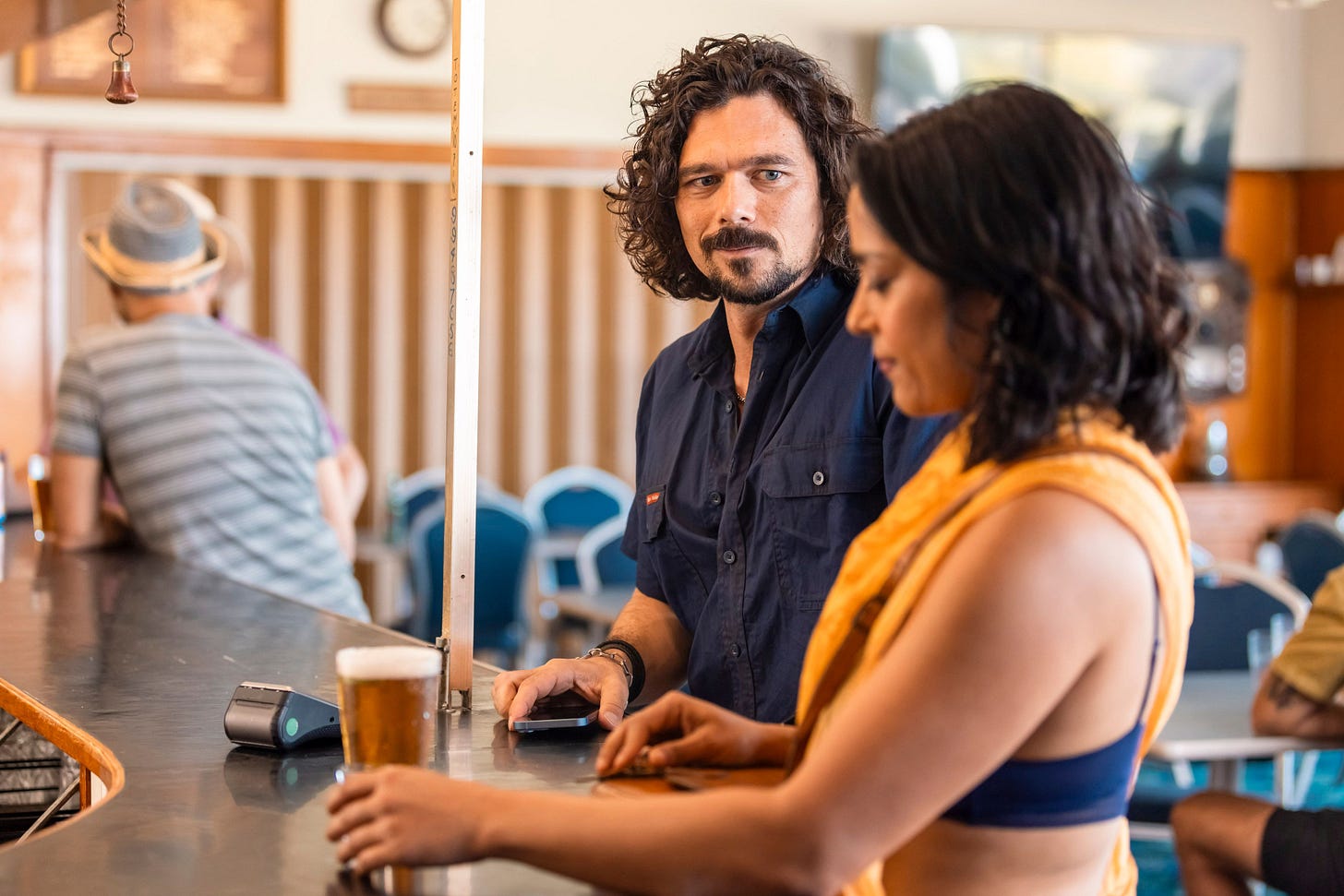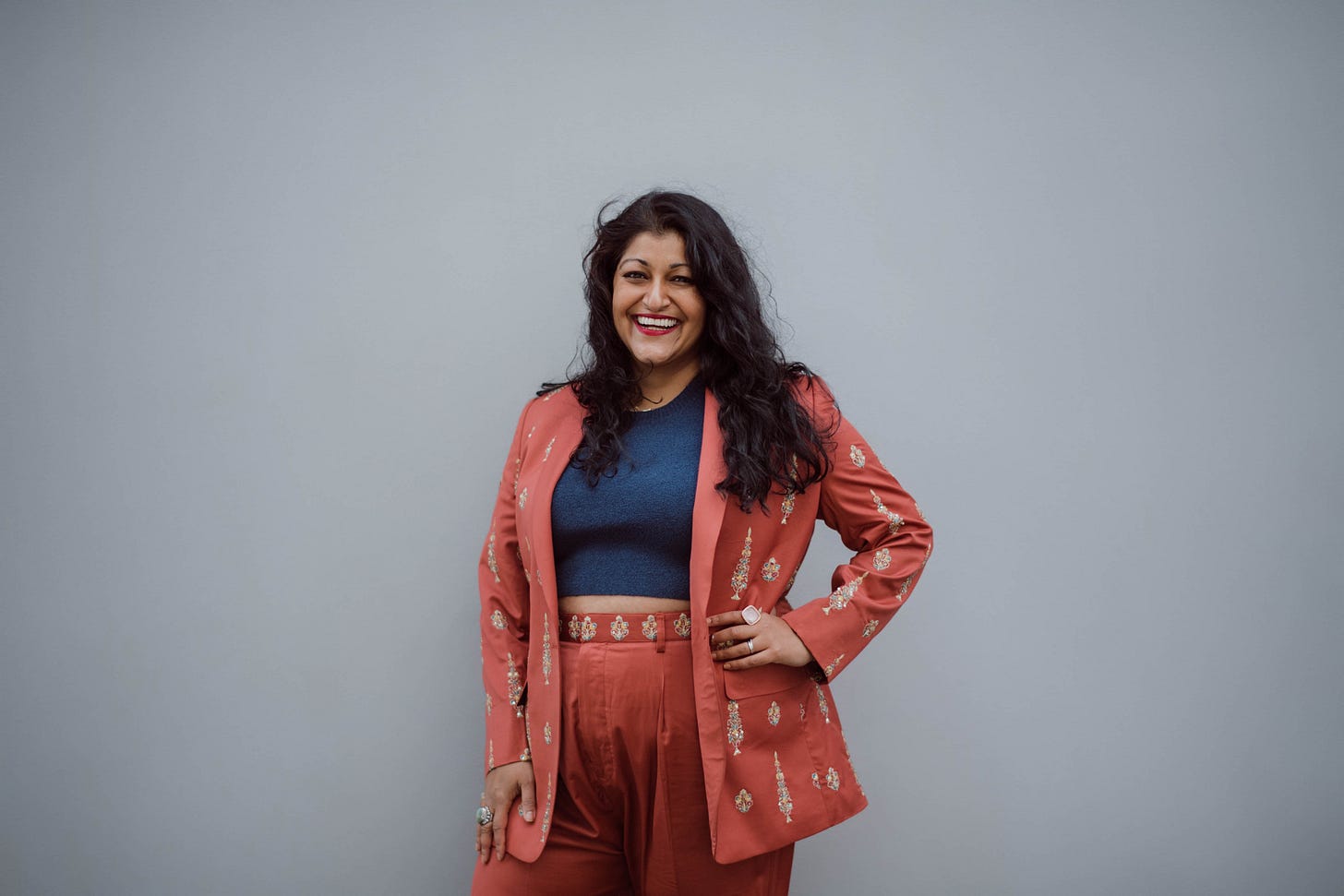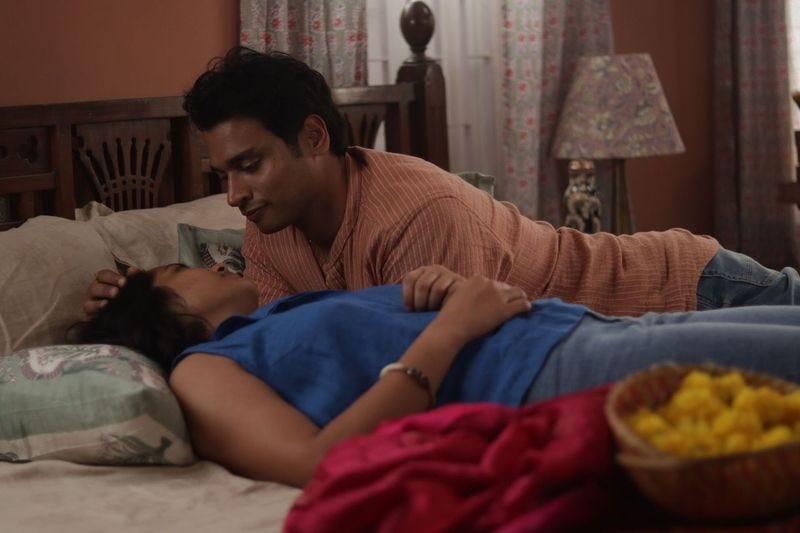There’s a scene in Four Years Later where an exasperated Sridevi enters a country pub… in a sari. My body clenched up as I assumed it was time for a Big Racist Moment™, a staple of so many stories about non-white migrants moving through white countries. Thankfully, the moment never came.
“I really wanted to show the in-between moments that we don't get to see on screen,” says Mithila Gupta, the writer and showrunner of SBS’ eight-part series. “Really, those big moments, a white writer could write them… a lot of them are about the perpetrator of racism, and they're very surface-level”. Arguably, they also tend to be written for white audiences in mind.
I'll admit that I came to the show with a slight weariness of the migrant stories that came before it: The Joy Luck Club, The Namesake, Minari, that one episode of Master of None. While all groundbreaking in their own ways, burnt into my brain was a blueprint for the migrant story: naive young couples coming up against a disorienting new culture, language and landscape.
What’s refreshing about Four Years Later is the swagger that these characters possess, particularly Sridevi, who, by the time she arrives in Australia, is 37. Mithila tells me she was originally written as a younger character, but upon seeing the 30-something actor Shahana Goswami perfectly embody the character in her audition, she aged the character up: a decision that ended up squaring perfectly with her own background.
“My parents came [to Australia] when they were 40,” Mithila says, “and I liked this idea that you can start a life again at that time.” As a woman in her 30s herself, Mithila adds that making her characters a similar age allowed her to make them as grounded and truthful as possible. “There's this assumption that by 30 you've got it all together, which is just not truthful and fair either.”
Now, we would be remiss not to mention the sex in this show. There’s so much sex in this show, though as Mithila points out, this wouldn’t be a talking point if these characters were white. We’re talking pre-marital sex, marital sex, casual sex – wholly subverting the sexlessness of the South Asian characters we’ve become so accustomed to seeing on screen.
“The intimacy was so important,” stresses Mithila. “I think we should be able to see the truth of how we interact.” Because ultimately, if we’re not showing Desi characters get laid on TV, we’re saying they’re not human. “I’m so sick of it,” says Mithila. “I’ve had to write those characters… [in other TV shows], but this was my baby, so I got to be like, let’s go for it. Now I can’t write the other way anymore. Why would you go backwards?”
But my favourite aspect of the show is how it touches on the relationship between first and second-generation migrants. Yash, newly arrived in town and training as a Doctor, is paired up at work with Arun (Roy Joseph), his Australian-born adversary. Arun is hard on Yash – too hard – in a way that will resonate with those of us rankled by freshly-arrived migrants upending our reputations. “He says, if you fuck up, it looks bad for both of us,” says Mithila, “which essentially means, these people out here think we’re identical.”
I’m reminded here of the phenomenon that W.E.B. De Bois famously referred to as “double consciousness”. While De Bois coined the term 1905 with reference to African-Americans in the US, any minority living under white supremacy will know what it’s like to see yourself as white people see you, that “peculiar sense of always looking at one's self through the eyes of others, of measuring one’s soul by the tape of a world that looks on in amused contempt and pity.”
Of course, as second-generation migrants, we’re often told how lucky we are to be raised in the West, to move through the world in a culture that is our own. In some respects, that may be true; we see, for example, how much Sridevi’s freedom is limited while she’s holed up in Jaipur with Yash’s family. But at the end of Four Years Later, both Yash and Sridevi make hard decisions about how they want to live in a way that is never quite available to those of us born in the West.
While they are able to choose between India and Australia as their home, I know that my Australian-ness was inflicted on me in a way that I never chose, as is an alienation from my culture and ancestors. Yash and Sridevi, for everything they go through, don’t know that pain. And they can take Australia or leave it.
All 8 episodes of Four Years Later are now available to stream free on SBS On Demand with double episodes premiering on SBS each Wednesday at 9.20pm








Okay, so I have just started the show. But let me be honest, there was a part of me that was hoping she would cheat on her husband with Matt. I am happy she didn't. But still.
Why is this here? It's just a other white guy desi girl show.